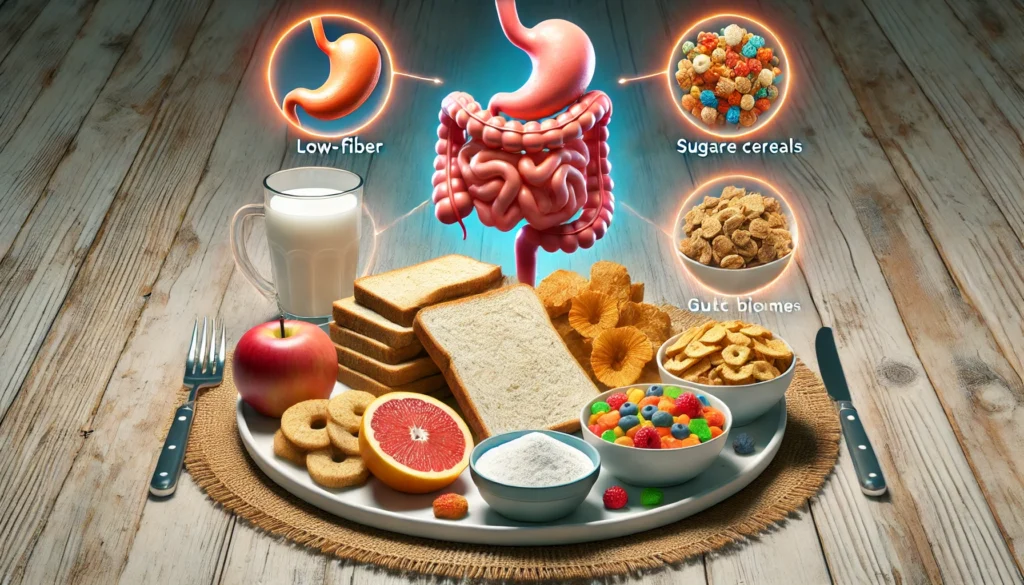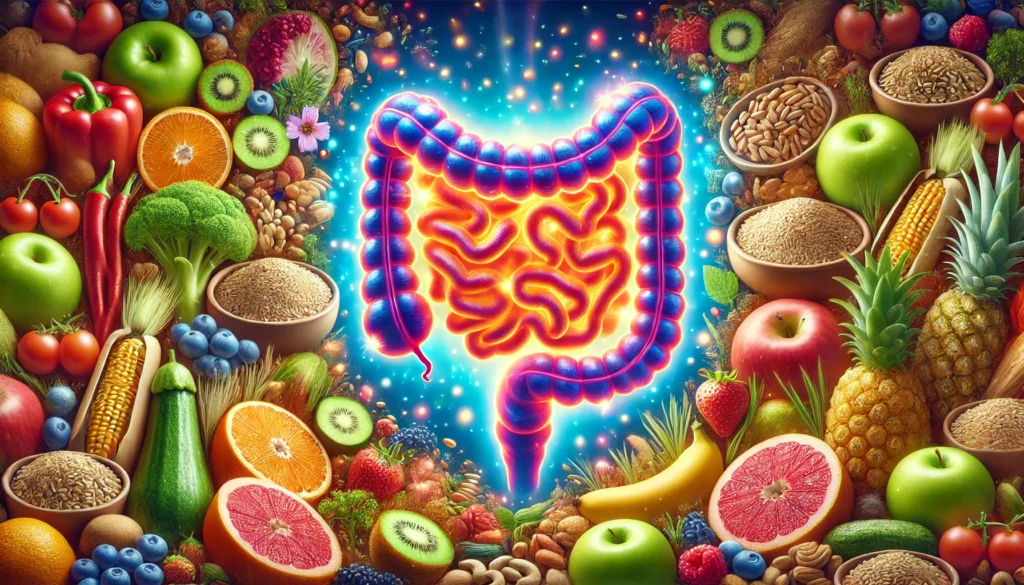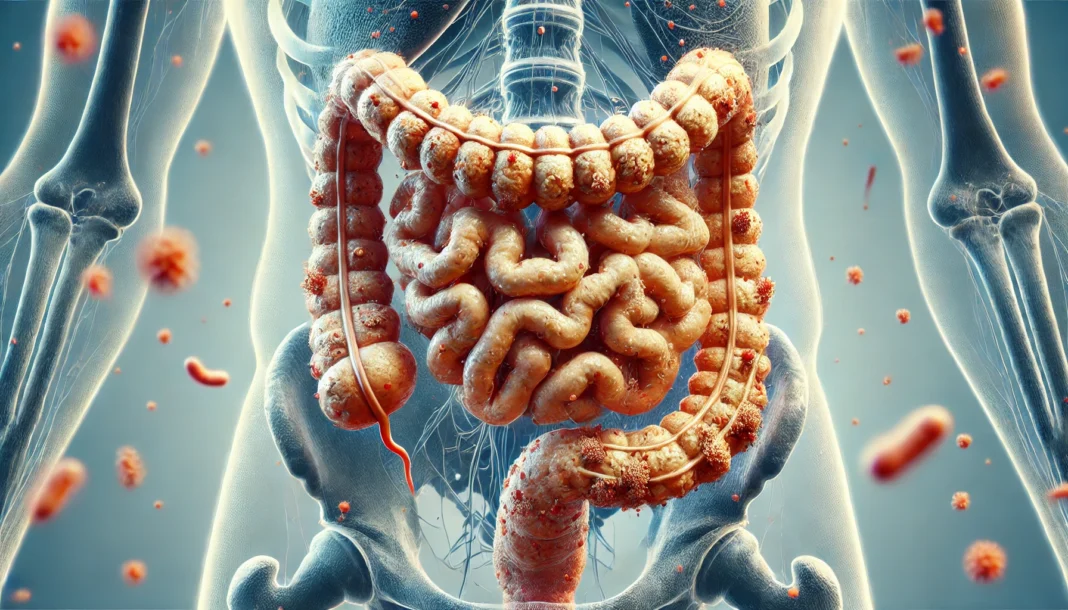Understanding the Role of Fiber in Digestion
Dietary fiber plays an essential role in maintaining digestive health, regulating bowel movements, and fostering a balanced gut microbiome. Fiber, a plant-based nutrient, is broadly classified into two categories: soluble and insoluble. Soluble fiber dissolves in water, forming a gel-like substance that helps soften stools and slow digestion, while insoluble fiber adds bulk to stool and promotes regular bowel movements. A deficiency in fiber can lead to various digestive complications, including diarrhea. While fiber is often associated with alleviating constipation, its absence can have the opposite effect, disrupting the gut’s microbial balance and leading to loose stools. Understanding the relationship between fiber intake and diarrhea is crucial for preventing digestive discomfort and maintaining long-term gastrointestinal health.
You may also like: Fiber and Microbiome: How Gut Health Impacts Athletic Recovery and Performance
Does a Lack of Fiber Cause Diarrhea? Examining the Connection
The digestive system relies on fiber to maintain a healthy stool consistency. A deficiency in fiber can disrupt normal bowel function, leading to frequent or watery stools. The absence of adequate fiber can result in undigested food moving too quickly through the intestines, reducing water absorption and causing loose stools. Individuals who do not consume sufficient fiber may also experience gut microbiome imbalances, further exacerbating diarrhea. The gut relies on fiber to nourish beneficial bacteria, and without it, harmful bacteria can proliferate, leading to increased intestinal irritation and irregular bowel movements.
Symptoms of Not Getting Enough Fiber
The symptoms of a fiber deficiency extend beyond just digestive discomfort. Individuals with insufficient fiber intake may experience a range of issues, including chronic loose stools, frequent bloating, increased gas, and a feeling of incomplete evacuation after bowel movements. Over time, a persistent lack of fiber can contribute to more serious conditions such as irritable bowel syndrome (IBS), diverticulosis, and even increased risk of colorectal cancer. The presence of diarrhea, particularly when accompanied by excessive gas and bloating, can be a clear indicator that the digestive system lacks fiber. Recognizing these symptoms early can help individuals make necessary dietary adjustments to restore gut health.

How Can Not Eating Enough Fiber Cause Diarrhea?
The process of digestion depends on fiber to regulate the movement of food through the intestines. Without fiber, food may pass too quickly, preventing the large intestine from adequately absorbing water. This can result in high fiber and diarrhea-like symptoms, where bowel movements become excessively loose and frequent. Additionally, a lack of fiber can impair the production of short-chain fatty acids (SCFAs), which play a critical role in maintaining intestinal health. Without SCFAs, the gut lining may become inflamed, further contributing to irregular digestion and discomfort. This explains why individuals who consume a diet low in fiber may suffer from chronic digestive instability.
The Gut Microbiome and Fiber Deficiency
A healthy gut microbiome depends on a steady intake of fiber to thrive. Fiber serves as a prebiotic, feeding beneficial bacteria and promoting a balanced microbial environment. When fiber intake is insufficient, gut bacteria populations can shift, allowing harmful bacteria to dominate and increasing the likelihood of diarrhea. The gut microbiome is intricately linked to overall digestive health, and any disruption in fiber consumption can result in an imbalance that contributes to digestive distress. Research indicates that individuals with diets high in processed foods and low in fiber are more prone to developing gut dysbiosis, a condition characterized by microbial imbalances that can lead to chronic diarrhea and other gastrointestinal issues.
Signs That You Are Not Getting Enough Fiber
Recognizing the signs of not enough fiber is crucial for making necessary dietary changes. Some common indicators include frequent diarrhea, inconsistent bowel movements, excessive bloating, and increased episodes of gas. In addition, individuals with fiber deficiencies may experience cravings for processed foods, as the body seeks out quick sources of energy in the absence of slow-digesting fiber. Long-term effects of inadequate fiber intake may also include higher cholesterol levels, unstable blood sugar levels, and an increased risk of developing type 2 diabetes. These warning signs emphasize the importance of prioritizing fiber-rich foods in daily nutrition.
How to Restore Gut Health with Fiber
For those experiencing symptoms of lack of dietary fiber, making dietary adjustments can significantly improve digestive health. Increasing fiber intake gradually can help avoid sudden digestive discomfort. Foods such as whole grains, legumes, vegetables, and fruits are excellent sources of dietary fiber. Consuming a variety of fiber-rich foods ensures a balanced intake of both soluble and insoluble fiber, promoting optimal digestion. Additionally, incorporating fermented foods such as yogurt, kimchi, and sauerkraut can further enhance gut health by introducing beneficial probiotics. Maintaining adequate hydration is also essential, as water helps fiber function effectively within the digestive system.
Does Fiber Cause Diarrhea? Understanding the Effects of Overconsumption
While fiber is essential for digestive health, consuming too much fiber too quickly can lead to digestive distress, including diarrhea. A sudden increase in fiber intake may overwhelm the digestive system, resulting in bloating, gas, and loose stools. For this reason, it is recommended to gradually increase fiber consumption while monitoring the body’s response. Individuals transitioning to a high-fiber diet should also ensure they are drinking enough water, as inadequate hydration can exacerbate digestive discomfort. Understanding how fiber interacts with digestion helps prevent unintended side effects while optimizing gut health.
Can Increasing Fiber Cause Diarrhea? Finding the Right Balance
Finding the right balance of fiber is crucial for maintaining digestive stability. Those who significantly increase fiber intake without allowing the body time to adjust may experience temporary digestive disturbances, including diarrhea. However, this reaction is typically short-lived and can be mitigated by making gradual dietary changes. A well-balanced fiber intake supports digestive health without causing excessive stool looseness. For individuals with sensitive digestive systems, incorporating fiber-rich foods slowly and pairing them with probiotics can help ease the transition and support gut microbiome balance.
Will Eating More Fiber Help with Diarrhea?
For individuals experiencing frequent diarrhea due to a lack of fiber, increasing fiber intake can be an effective solution. Soluble fiber, in particular, can help absorb excess water in the intestines, firming stool consistency and reducing the frequency of loose bowel movements. Foods such as oats, bananas, and sweet potatoes are excellent sources of soluble fiber and can help regulate digestion. However, it is important to introduce fiber gradually to avoid overwhelming the digestive system. Consulting a healthcare provider can provide personalized guidance on managing digestive health through diet.

Frequently Asked Questions (FAQ) About Fiber and Diarrhea
1. How does lack of fiber cause diarrhea?
A deficiency in fiber can disrupt the natural balance of digestion by altering stool consistency. Fiber helps regulate bowel movements by absorbing water and adding bulk, so when it is lacking, stool may pass too quickly through the intestines. This can result in loose, watery bowel movements, leading many to wonder: “Does lack of fiber cause diarrhea?” Additionally, fiber plays a key role in feeding beneficial gut bacteria, which help maintain digestive health. Without enough fiber, harmful bacteria can proliferate, contributing to inflammation and irregular digestion.
2. Can increasing fiber cause diarrhea?
Yes, abruptly increasing fiber intake can sometimes lead to digestive distress, including diarrhea. When the digestive system is not accustomed to high amounts of fiber, it may struggle to process it efficiently, leading to bloating, gas, and loose stools. If you’re wondering, “Can increasing fiber cause diarrhea?” the answer lies in moderation. Gradually increasing fiber intake while drinking plenty of water allows the gut to adjust, minimizing unwanted symptoms. A sudden shift in fiber consumption without proper hydration can make high fiber and diarrhea-related symptoms more pronounced.
3. Why does fiber give me diarrhea in some cases?
Fiber can cause diarrhea if it is consumed in excessive amounts or if the digestive system is sensitive to certain types of fiber. Soluble fiber absorbs water and slows digestion, while insoluble fiber adds bulk and speeds up transit time. An imbalance between these two types of fiber can contribute to digestive discomfort. If you’ve asked yourself, “Why does fiber give me diarrhea?” consider whether you’re consuming too much insoluble fiber too quickly. Additionally, some fiber-rich foods, like beans and certain vegetables, can be difficult to digest and may cause gastrointestinal distress in sensitive individuals.
4. What are the signs of not enough fiber in my diet?
A lack of fiber can present itself in various ways beyond just digestive issues. Common symptoms include frequent loose stools, bloating, and difficulty feeling full after meals. Other signs of not enough fiber include erratic blood sugar levels and increased cravings for processed foods. Over time, a fiber deficiency can contribute to more serious health concerns, such as increased cholesterol and a higher risk of cardiovascular disease. Recognizing the symptoms of not enough fiber can help individuals take proactive steps toward improving their diet.
5. Can not eating enough fiber cause diarrhea long-term?
Yes, prolonged fiber deficiency can contribute to chronic digestive instability. If you’re wondering, “Can not eating enough fiber cause diarrhea?” the answer depends on the overall health of your digestive system. A persistent lack of fiber can lead to imbalances in gut bacteria, reducing the gut’s ability to properly absorb water. This long-term imbalance may result in continued episodes of diarrhea, alternating with constipation. Addressing dietary fiber deficiency symptoms early can help prevent more serious digestive disorders in the future.
6. Will eating fiber help with diarrhea caused by a lack of fiber?
For individuals experiencing loose stools due to a fiber deficiency, increasing fiber intake can often help. If you’ve asked, “Will eating fiber help with diarrhea?” the key is to introduce fiber gradually and choose the right types. Soluble fiber, found in foods like oats, bananas, and carrots, helps absorb excess water in the intestines, leading to firmer stool. However, consuming too much fiber at once can have the opposite effect, so moderation is essential. Pairing fiber with adequate hydration ensures that it supports digestion effectively.
7. What are the best sources of fiber for loose stools?
Choosing the right type of fiber is essential for managing diarrhea. If you’re looking for fiber for loose stools, opt for soluble fiber-rich foods such as sweet potatoes, apples, and flaxseeds. These foods slow digestion and help stabilize stool consistency. Insoluble fiber, found in foods like whole grains and leafy greens, may be beneficial in moderation but can sometimes exacerbate loose stools if consumed excessively. Balancing both types of fiber is key to maintaining digestive regularity.
8. Can fiber cause diarrhea in individuals with sensitive stomachs?
Yes, fiber can cause diarrhea in those with digestive sensitivities, particularly if their bodies are not accustomed to processing large amounts of fiber. Individuals with conditions like irritable bowel syndrome (IBS) may find that fiber exacerbates their symptoms. If you are wondering, “Can fiber cause diarrhea?” and you have a sensitive stomach, consider slowly increasing fiber intake and monitoring which foods cause discomfort. Keeping a food diary can help identify specific triggers and guide dietary adjustments.
9. What are the deficiency symptoms of fiber beyond digestion?
While digestive issues like diarrhea are among the most well-known signs, a deficiency in fibre can lead to other health concerns. Lack of fiber symptoms may include increased cholesterol levels, difficulty maintaining a healthy weight, and fluctuating blood sugar levels. Additionally, fiber is essential for maintaining a diverse gut microbiome, and without it, overall immune function may decline. Recognizing deficiency symptoms of fiber early can help prevent these long-term health issues.
10. How do I prevent high fiber diet diarrhea?
If you’ve experienced high fiber diet diarrhea, the solution is often to adjust the way you incorporate fiber into your meals. Gradually increasing fiber intake over time allows your digestive system to adapt without overwhelming it. Hydration is also critical, as water helps fiber move smoothly through the intestines. Pairing fiber with healthy fats and proteins can help regulate digestion and minimize discomfort. If symptoms persist, it may be necessary to modify the types of fiber you consume to find a balance that works for your body.

Conclusion: Prioritizing Fiber for Gut Health and Digestive Stability
A lack of fiber can cause diarrhea and disrupt overall digestive health, leading to chronic discomfort and irregular bowel movements. Recognizing the symptoms of dietary fiber deficiency and taking proactive steps to increase fiber intake can help restore gut stability. Ensuring a well-balanced diet that includes both soluble and insoluble fiber, along with adequate hydration and probiotic-rich foods, is essential for maintaining a healthy digestive system. By prioritizing fiber, individuals can achieve long-term gut health, reducing the risk of digestive complications and enhancing overall well-being.
Further Reading:
Signs of an Unhealthy Gut and What to Do About It
gut health, digestive health, fiber-rich foods, bowel regularity, soluble fiber benefits, insoluble fiber effects, gut microbiome balance, dietary fiber intake, probiotics and digestion, whole grains for digestion, plant-based nutrition, healthy digestion tips, fiber and hydration, gastrointestinal wellness, natural remedies for diarrhea, preventing digestive issues, fiber deficiency risks, high-fiber meal planning, foods for gut flora, best fiber sources

